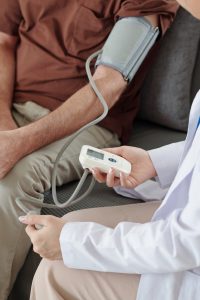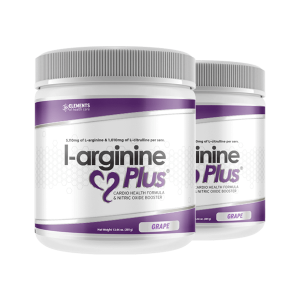High blood pressure is a common condition in the U.S., so when should you worry about your blood pressure? Learn about the symptoms and dangers.
About 1 in 3 adults in the U.S. have high blood pressure (hypertension), which is a significant risk factor for heart disease. For this reason, it’s important that you know when it’s time to worry about your blood pressure. The following is an overview of high blood pressure, its symptoms, and when to see a doctor.
Recommended: Discover the #1 Supplement for Healthy Blood Pressure
High Blood Pressure Symptoms
Hypertension is known as the “silent killer” for a good reason: it typically has no symptoms, so it can go unnoticed for years. However, if you do experience any symptoms due to hypertension, you may be experiencing a medical emergency called a hypertensive crisis.
The following is a classification of the different blood pressure classifications according to the American Heart Association (AHA):
- Normal Blood Pressure:
 Systolic: less than 120 mm Hg
Systolic: less than 120 mm Hg- Diastolic: less than 80 mm Hg
- Elevated Blood Pressure:
- Systolic: 120-129 mm Hg
- Diastolic: less than 80 mm Hg
- Hypertension Stage 1
- Systolic: 130-139 mm Hg
- Diastolic: 80-89 mm Hg
- Hypertension Stage 2
- Systolic: 140 mm Hg or higher
- Diastolic: 90 mm Hg or higher
- Hypertensive Crisis
- Systolic: higher than 180 mm Hg
- Diastolic: higher than 120 mm Hg
When to Worry
If you’re experiencing symptoms such as a sudden and severe headache or nosebleed, it may be a hypertensive crisis. First, check your blood pressure. If it’s above 180/120 mm Hg, then rest for 5 minutes and check it again. If it’s still above 180/120 mm Hg, then seek medical help at your doctor’s.
Furthermore, if you experience severe symptoms like shortness of breath, chest pain, or a visual impairment, then call 911 and get emergency medical treatment. If you experience dizziness as a result of blood pressure medication and it doesn’t go away, then talk with your family doctor.
To prevent things from getting to that stage, it’s important that you eat a healthy diet low in sodium and regularly exercise. It also helps to limit your alcohol intake, quit tobacco, maintain a healthy weight, and manage your stress. By worrying about your blood pressure health at an early age, you decrease the risk of developing high blood pressure and undergoing a hypertensive crisis.
Why L-arginine Plus is the #1 Supplement to Support Healthy Blood Pressure
If you’ve discovered your blood pressure is simply too high, you most likely aren’t excited about a lifelong sentence to taking prescription medications. And while there are literally millions of people who will now be using medicaiton to control their blood pressure for their entire life, there’s also some alternatives to consider. Of course, it’s important to discuss your options with your doctor.
If you’re looking for a non-prescription support supplement, look no further than L-arginine Plus. L-arginine Plus is a one-of-a-kind supplement drink mix. Each serving of L-arginine Plus includes the key amino acids l-arginine and l-citrulline. These amino acids increase the molecule nitric oxide. Nitric oxide is a vital molecule the body uses to regulate the blood vessels. When there is not enough nitric oxide available, our blood vessels become stiff and constricted. As we age, our nitric oxide levels are diminished and that’s one reason so many people are stuck facing high blood pressre.
By increasing nitric oxide, L-arginine Plus helps widen the blood vessels to ease the pressure on the heart as it pumps blood throughout the body. This process helps support healthier blood pressure.


